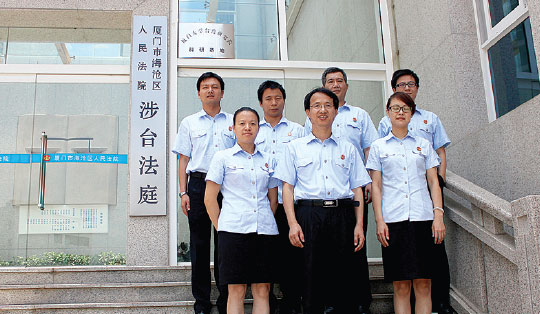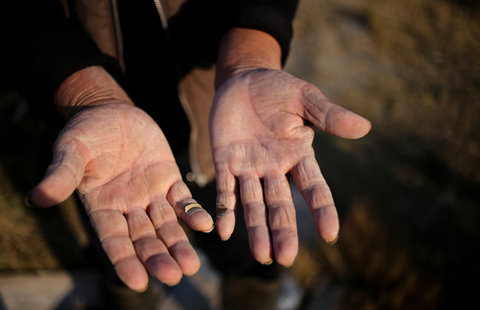Bridging the legal divide
Updated: 2014-12-30 07:41
By He Na(China Daily)
|
||||||||
|
Members of staff pose in front of the Haicang District Cross-Straits Court in Xiamen. [Provided to China Daily] |
Arbitration
The court always attempts to resolve cases through arbitration, and 90 percent of the cases brought before it have been resolved without the need for a formal trial.
"The court aims to provide convenience and legal security for people from Taiwan living and working on the mainland. Arbitration is first option for us when handling cases because it can save time and money for all concerned," Cao said.
He used a recent case as an example of the way the court works. The plaintiffs, three brothers - shareholders and board members of a Taiwan enterprise in Fujian - entrusted a large sum to their mother for safekeeping, but when they needed the money to alleviate a shortage of capital, they discovered she had used it to buy a life insurance policy. When the brothers attempted to cancel the policy, the insurance company refused.
"The plaintiffs suspected that the company's representatives had misled their mother when they persuaded her to sign the contract, but the company insisted the contract was legal and she had signed it of her own free will," Cao said.
When the case was investigated, the court staff discovered that the elderly lady had paid for the policy with a credit card belonging to one of her sons, but had signed her own name on the contract.
"That meant both parties had a good chance of winning the case, but the matter would take an extremely long time to resolve, and without the capital they needed, the brothers' business was likely to go bankrupt," Cao said.
"We explained to both parties that resolving the case through the normal court procedures would be time-consuming and expensive. Then we proposed a compromise whereby the insurance company would refund some of the money and the brothers would withdraw their action. Both sides agreed, and the brothers were able to avoid financial ruin," he said.
Huang Ju-hsu, a former president of the Taiwan Businesspeoples' Association in Xiamen, said: "The cross-Straits court is a really good initiative that helps people from Taiwan to understand the laws and policies on the mainland."
According to Fan Liqing, spokeswoman with the State Council's Taiwan Affairs Office, cross-Straits disputes are usually financial, and to better protect the legal rights of people from Taiwan, a number of cities on the mainland have set up courts to resolve them.
The number of disputes has fallen as a result, and the resolution of some cases that had long been deadlocked has won praise from the parties concerned.
"The number of cross-Straits financial disputes has declined in recent years, and we will continue to make every effort to ensure these arguments are handled properly to better protect the interests of people from Taiwan in accordance with the law," she said.

 Top 10 happiest cities in China 2014
Top 10 happiest cities in China 2014
 Children step out of Daliang Mountain
Children step out of Daliang Mountain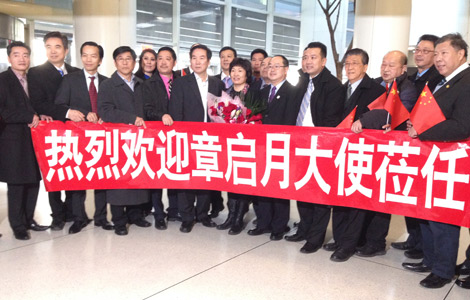
 New Consul General of China in New York arrives at JFK
New Consul General of China in New York arrives at JFK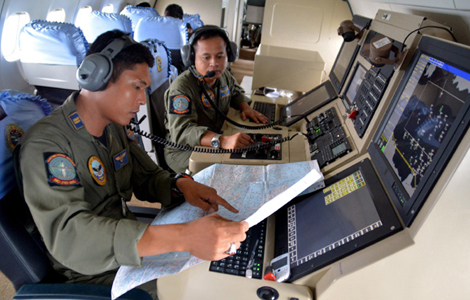
 Missing AirAsia plane maybe at sea bottom
Missing AirAsia plane maybe at sea bottom
 Chinese artists get Times Square spotlight
Chinese artists get Times Square spotlight
 Yearender: Best selling Chinese films in 2014
Yearender: Best selling Chinese films in 2014
 Top 10 policy changes of China in 2014
Top 10 policy changes of China in 2014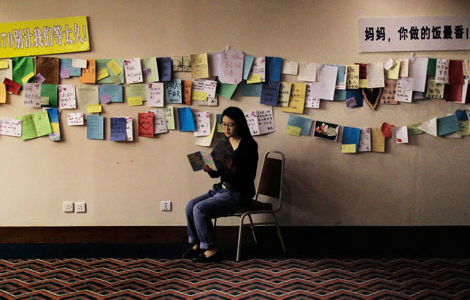
 Families of MH370's passengers still hold out hope
Families of MH370's passengers still hold out hope
Most Viewed
Editor's Picks

|
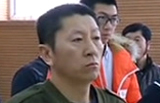
|

|

|

|

|
Today's Top News
China says no role in Sony hacking
'Human error' at fault in disappearance of AirAsia flight
Lost plane's request to change course was denied
The Interview gets mixed views
Harvard students seek meaty profits from alpaca
Funeral set for Officer Wenjian Liu
China offers to help in search for missing AirAsia flight
AirAsia plane has tire problem in Philippines
US Weekly

|

|
